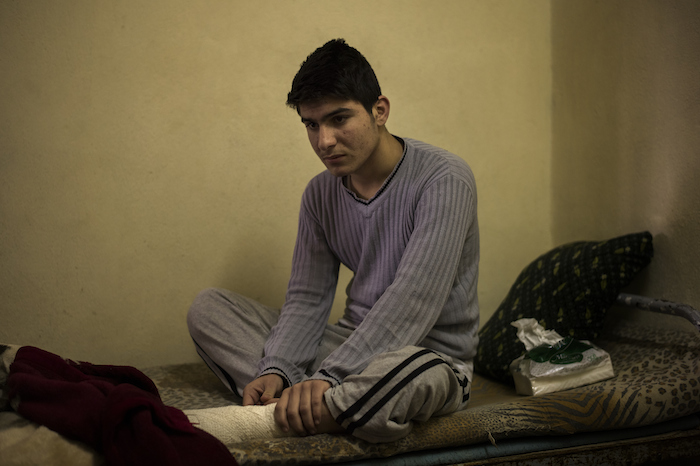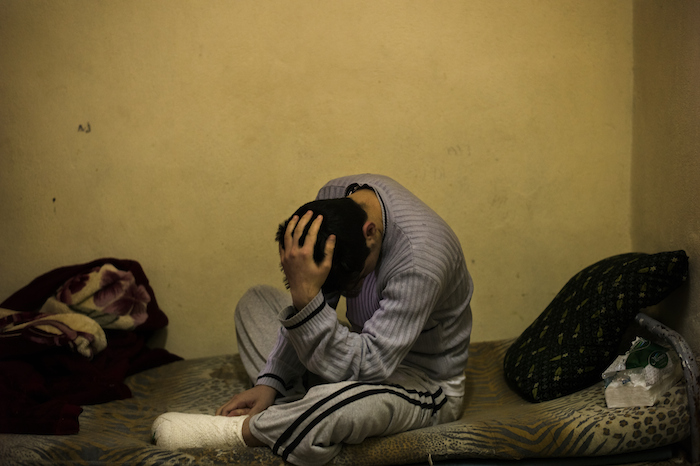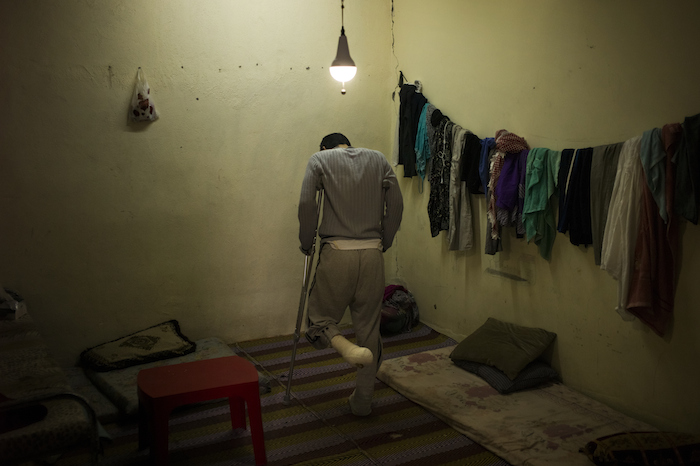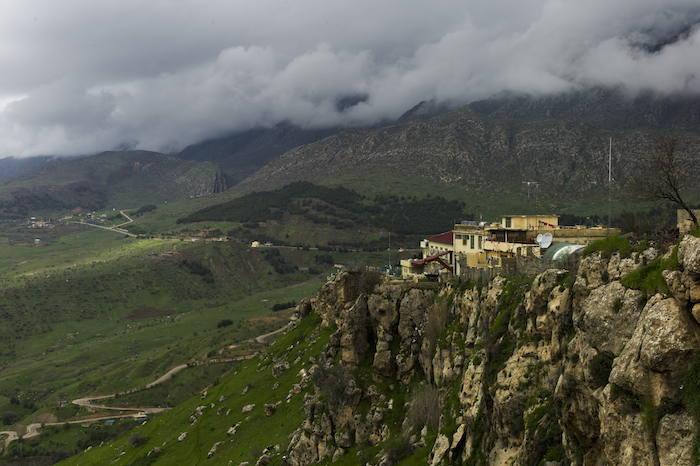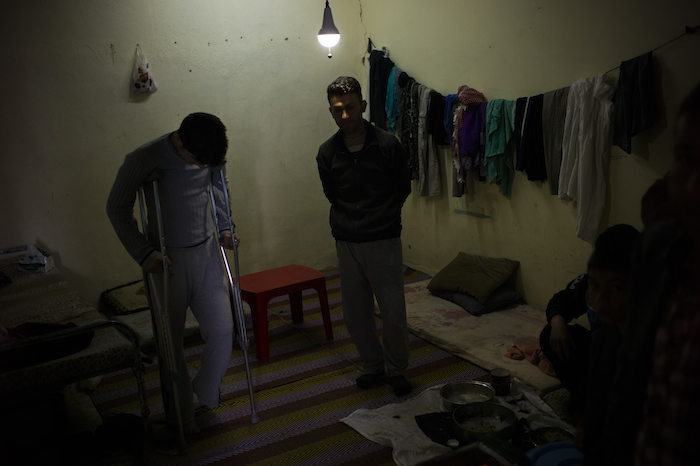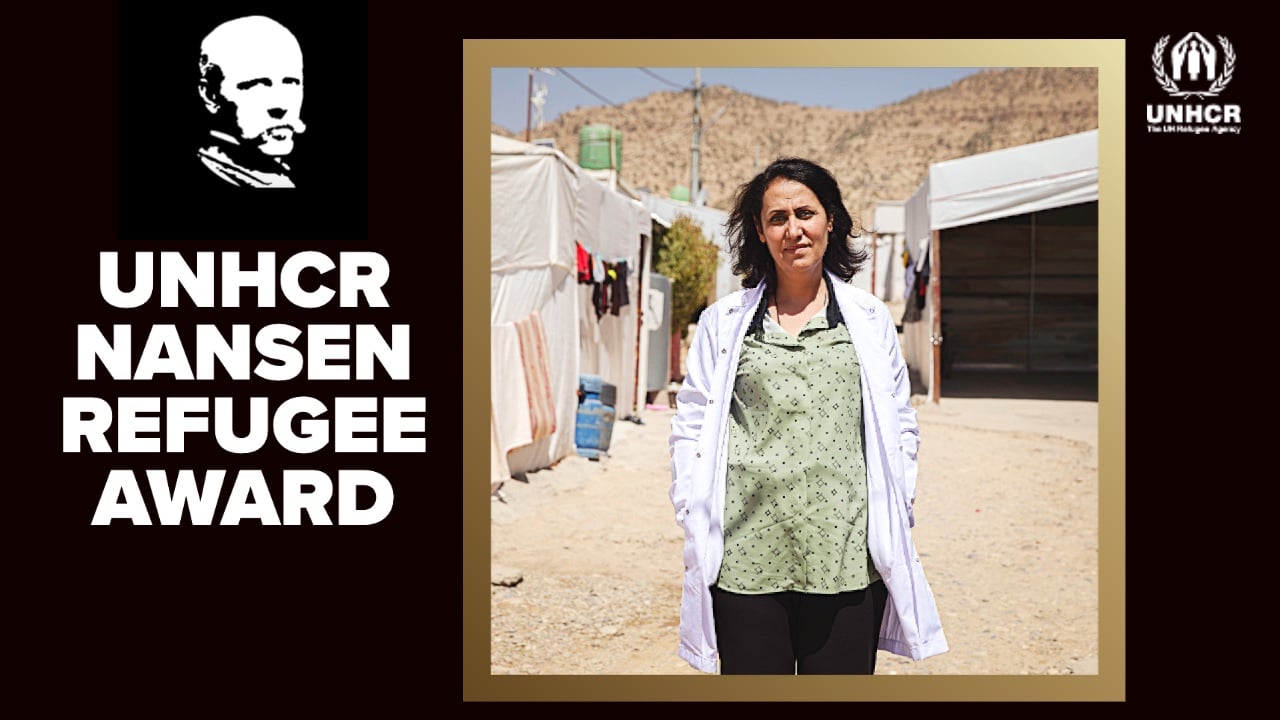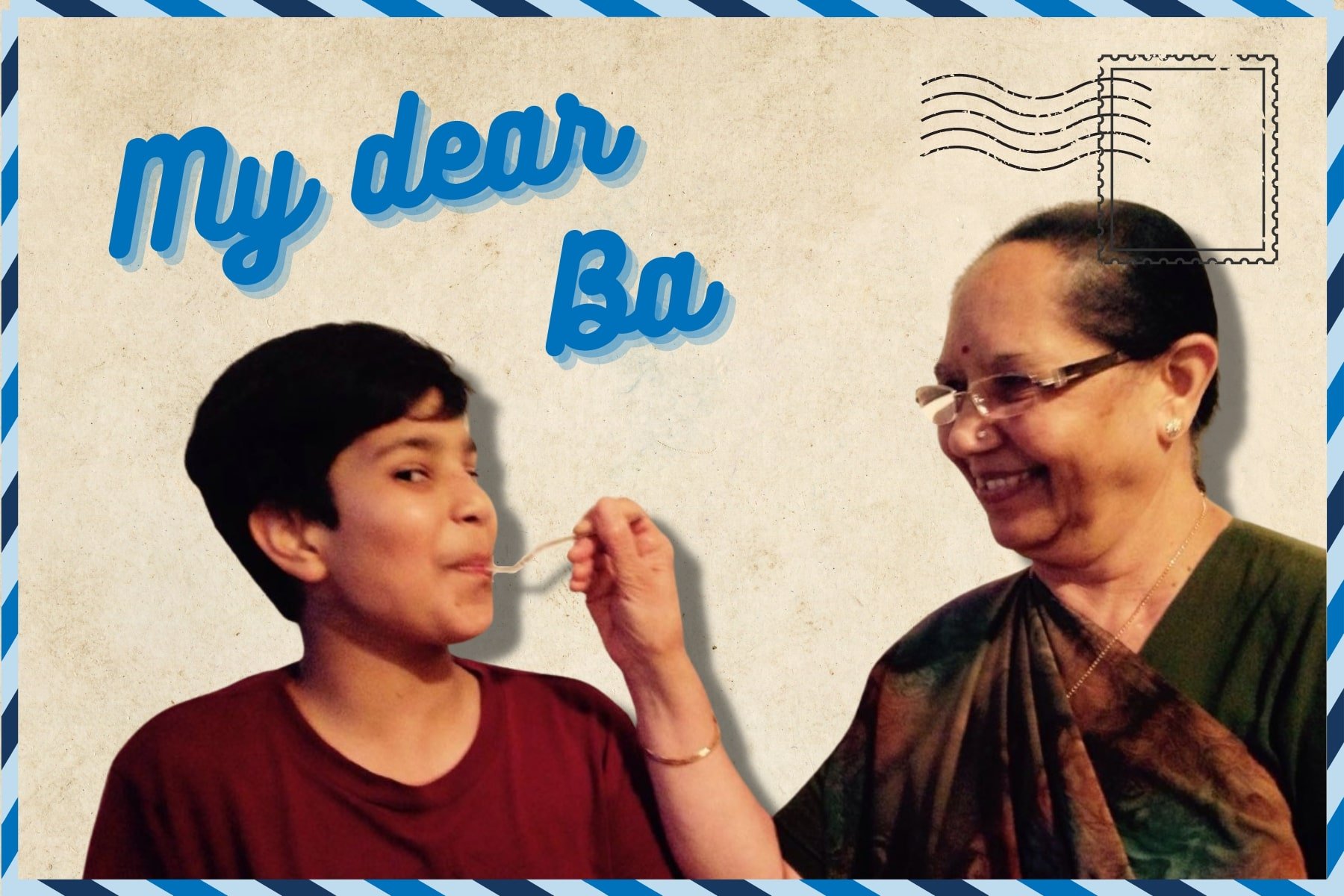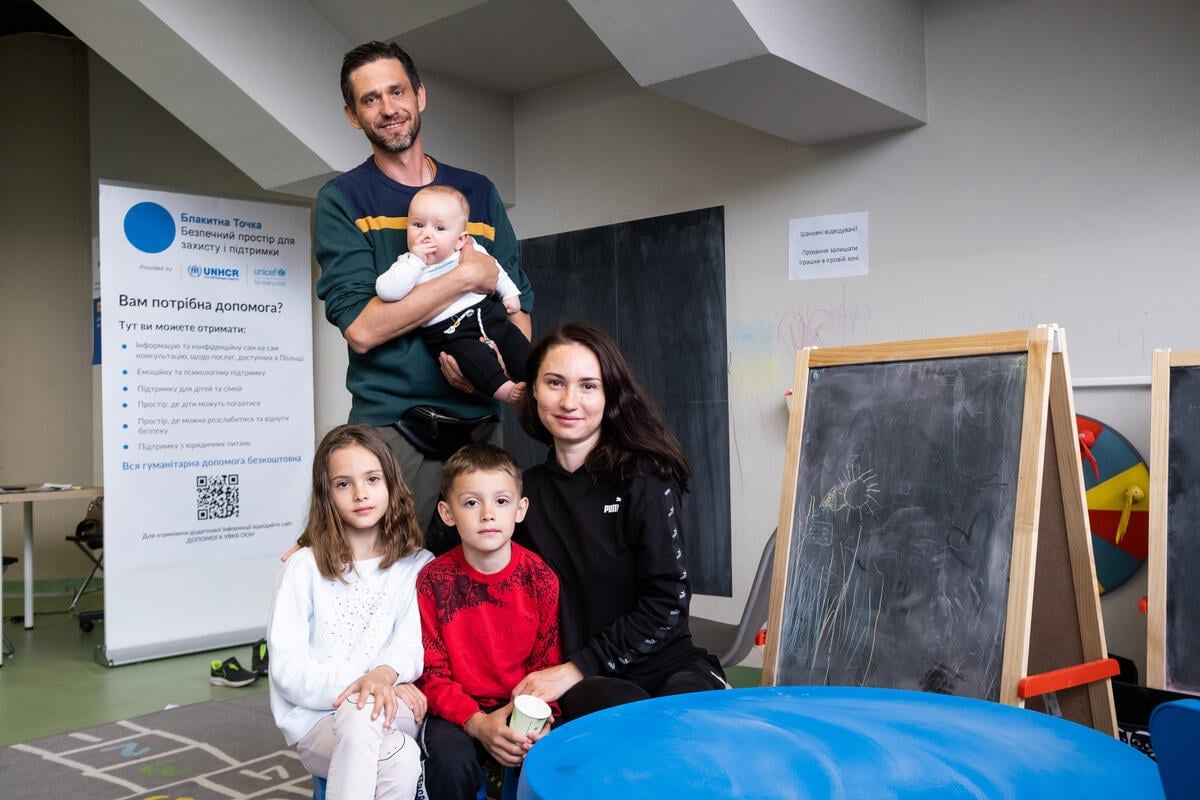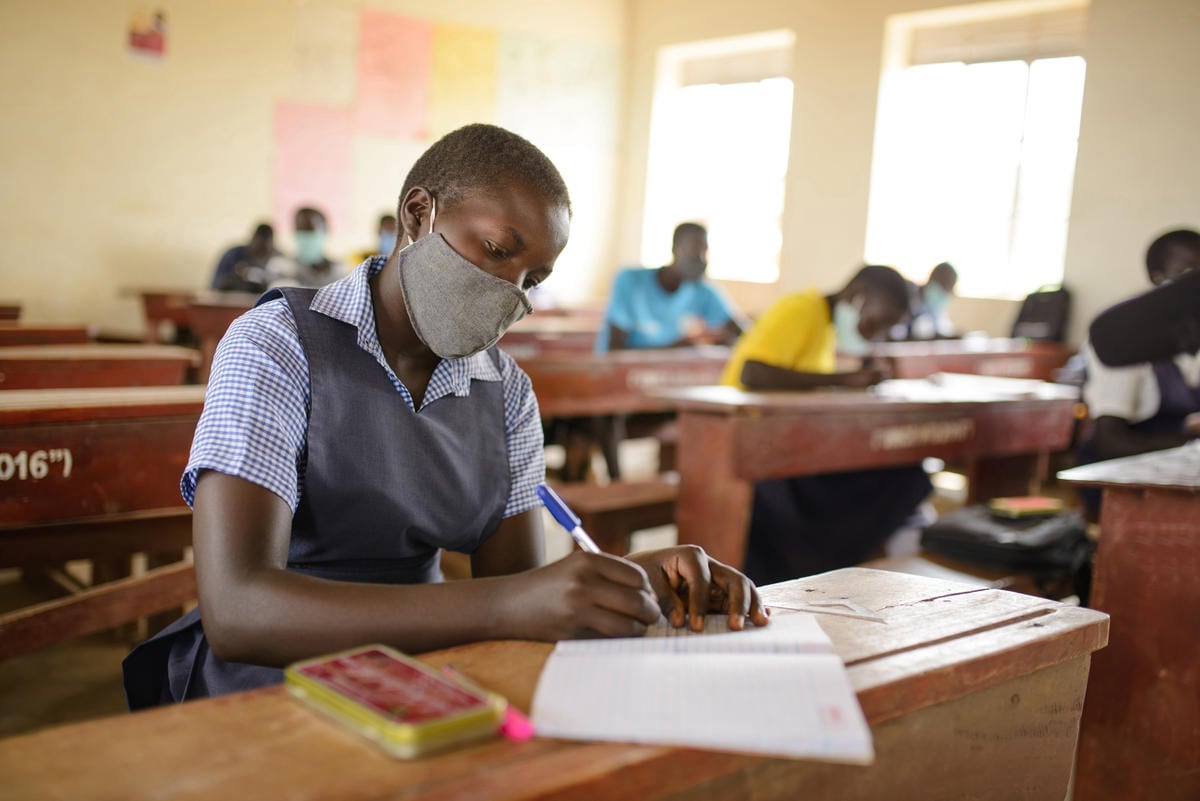An Old Conflict Causes New Wounds in Iraq

An Old Conflict Causes New Wounds in Iraq
Asam thought he had lost everything that mattered when his family fled their home in Sinjar, in the Kurdistan Region of Iraq, during an attack in August 2014. But just a few months after finding shelter in Amadi, an idyllic town perched atop a mountain in Dohuk province, he ran down a hillside to retrieve a football and stepped on a landmine. The blast sprayed his body with shrapnel and blew off his left foot.
"It must have been my destiny," says Asam, 17, noting that the path was one he and his cousins had taken dozens of times before. At times appearing to be in a daze, he tells me that his physical injuries have been healing well since the incident in late November, but mentally he is not the same person he once was.
Asam has mastered walking on crutches, gracefully pivoting around the community centre that is now his home. But he says he is too scared to return to the garden where he used to play. He also has trouble sleeping; almost every night he wakes up screaming from nightmares.
Landmines are a well-known hazard to residents in this part of Iraq. They are relics of Saddam Hussein's war against the Kurds in the 1980s, of internal conflicts between rival political parties, and of the 1991 Gulf War. But displaced families from Sinjar, in the country's northwest, say they were unaware of the seriousness of the danger.
After Asam's accident in Amadi, the Mine Advisory Group (MAG), an NGO specializing in landmine awareness and clearance, set up barbed wire and warning signs on the edge of the garden. But children continue to play here, as it is the only outdoor space they have.
Neil Arnold, a technical operations manager at MAG, says that a high percentage of those injured and killed by landmines in the past two years have been refugees and displaced Iraqis. "It's because they're in unfamiliar territory," he explains. "They're wandering in places where locals would know not to go."
To raise awareness of mine risks, organizations like MAG conduct a lot of activities in camps for refugees and internally displaced people, Arnold says. But it's more difficult to reach those living in makeshift accommodations, like Asam and his family, because they are scattered over such a wide area.
"It's because they're in unfamiliar territory. They're wandering in places where locals would know not to go."
Asam's father, Hussein, 67, says the only way he can explain what happened to his son is that it must have been destined by God. He acknowledges that he was warned about the dangers of landmines in the area. But, having lived all his life in a part of Iraq largely free of these hazards, he says he had no idea how serious the warning was. "Of course some people came and told us there might be mines, but we didn't really think there would be."
Sitting on a thin mattress atop a metal bed frame, hunched over his bandaged leg, Asam recounts the circumstances of his injury with little emotion.
"We were playing in that open garden," he recalls, looking down and avoiding eye contact. "Someone kicked the ball over the fence and it fell down the hill. I got the ball and threw it to my friend – he was in front of me. Then I started to walk back up and it exploded. I don't remember anything after that."
Asam says he came to as he was being carried to the hospital. "I couldn't feel myself, but I felt some people around me and I saw people were holding my legs." He pauses, fidgeting with his bandages, and then adds: "I could already tell I had lost my foot."
Taken to hospital in Dohuk, he underwent nearly a dozen surgeries over the course of a month. The doctors, his family says, were intent on saving a portion of his ankle that survived the blast. Those fragments of bone and muscle could make it easier for him to walk normally one day, if he's able to be fitted with a prosthetic foot.
"In the beginning, I couldn't sleep because of the pain. Now I can't sleep because of the shock."
When his son finally returned home, Hussein says he was barely recognizable. "He was broken. Psychologically, he was in shock." Now, Asam is doing much better, but Hussein says he has yet to make a full mental recovery. "You can still tell. When he sleeps, he often wakes up from those nightmares."
Asam nods in agreement. "In the beginning, I couldn't sleep because of the pain," he says. "Now I can't sleep because of the shock."
Surrounded by family members, Asam spends most of his time in one of two small rooms that make up his family's temporary home in a community centre on the edge of Amadi. He is one of 14 siblings, ranging from eight to 30 years old, and has an especially close bond with two of his older brothers: Aiyid, 25, and Naef, 27. When they aren't helping their parents with chores, they stay close by Asam's side watching television or tapping away on smartphones. These are the rare moments when Asam smiles, relaxes and jokes.
This community centre in Amadi, which UNHCR helped renovate to house displaced Iraqis, is home to 25 families from Sinjar. UNHCR's local partners provide families in the centre with blankets, mattresses and cookery.
With about 250 people sharing two dozen rooms, the place is teeming with children. The garden beside the minefield where Asam was injured is the only open space to play, and while parents here say they tell their children not to play outdoors, few listen.
Asam, still not ready to return to the garden, stays behind in the family's room, but his father and brothers walk out to the fence overlooking the spot where the mine exploded. "These signs, they put them here after what happened," Hussein says, adding that the twists of barbed wire atop the fence are also new additions. Behind him, a group of children play hopscotch.
"I can't control them," Hussein says, shaking his head at the children. "Even my own sons, when I'm not here, they still play in this garden."
"Even my own sons, when I'm not here, they still play in this garden."
Back inside the community centre, Asam's sisters make tea in a communal kitchen. Now that their son is home from the hospital, Asam's parents say they're worried he's not getting the care he needs because they can't afford to pay for physical therapy visits or send him to a hospital abroad.
Asam's basic health care is covered by the Iraqi Department of Health, which partners with UNHCR.
"The doctors said they can make me an artificial foot by October," says Asam. "They said if they make it, I need to pay, but we don't have that kind of money."
The hospital estimates that it will cost a million Iraqi Dinars, or about US $800, for Asam's artificial foot. This kind of care is far beyond his family's means, and also beyond what aid organizations are able to cover. Asam's entire family has been out of work since they fled Sinjar last August. They've since exhausted their savings, forcing them to survive on handouts.
"Before now, we never asked anyone to do anything for us," says Asam's brother Naef. "It's just I'm so scared that my brother won't be able to walk again."


